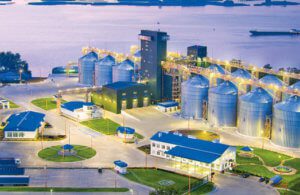
Ukraine in January-November 2018 exported electricity worth $297.619 million, including $31.505 million in November alone. Hungary bought electricity worth $170.705 million, Poland $70.792 million, Moldova $48.019 million, other countries $8.103 million, Ukraine’s State Fiscal Service has said. Over the period under review, Ukraine imported electricity worth $1.316 million, in particular, electricity imports from the Russian Federation were estimated at $1.245 million, from Belarus at $0.064 million, from Moldova at $0.008 million.
As reported, Ukraine plans in 2018 to increase exports of electricity to the EU and Moldova by 13.3% from 2017 to 5.855 billion kWh. According to the forecast for 2018, deliveries from the Burshtyn TPP energy island to Hungary, Slovakia, Romania will be 3.6 billion kWh, to Poland 1.2 billion kWh, and to Moldova 1.055 billion kWh.

On Thursday, the Verkhovna Rada passed at second reading bill No. 8044, amending to the Budget Code of Ukraine on the implementation of medium-term budget planning, which introduced three-year budget planning. An Interfax-Ukraine correspondent reported that 238 deputies backed the document.
“We have been working for three years to consolidate a civilized approach to budget planning in the state. This is the main reform in the field of public finance,” Finance Minister Oksana Markarova said, commenting on this decision on the ministry’s website.
She recalled that in the pilot mode, this approach has worked successfully since 2017.
The Finance Ministry said that the adopted bill establishes the rule that state and publicly guaranteed debt cannot exceed 60% of GDP, and the national budget deficit – 3% of GDP. In addition, state guarantees will not exceed 3% of the planned revenues of the general fund of the national budget, and the maximum amount of the national budget deficit in the law on the national budget cannot be larger than the deficit in the Budget Declaration.
The finance minister said that three-year budget planning is necessary to ensure strategic priorities with a financial resource, as well as to increase the responsibility of spending units.

Nibulon (Mykolaiv), one of the largest grain traders in Ukraine, intends to build a port in the village of Oleksandrivka (Kherson region) in five years, the company said in a statement.
“This port is a great prospect for the development of the entire Kherson region. This is an extremely difficult task and very large investments, but our company can do this only in five years,” CEO of the company Oleksiy Vadatursky said.
According to him, Nibulon continues the implementation of the investment program in Kherson region. There are already two transshipment terminals of the company in the village of Kozatske and Hola Prystan, while next year the company plans to increase the capacity of the Hola Prystan transshipment terminal by 20,000 tonnes, as well as to expand the capacity of this enterprise for accepting rice.
The company plans in the next two years to reorient almost all of its cargoes to the Dnipro River and transport by water up to 4 million tonnes of products per year, which will allow reducing the load on the roads.
Nibulon cultivates 83,000 hectares of land. It exports agricultural products to more than 60 countries. The annual export volume exceeds 4.5 million tonnes.

Passenger traffic at Kharkiv International Airport in November 2018 was 72,700 people, which is 19% more than in the same period of 2017.
According to the press service of the airport, the largest demand last month was for flights to Kyiv, Istanbul, Warsaw, Katowice, Dortmund, Gdansk, Wroclaw, Tel Aviv, and Minsk.
The airport also reported that in 2019 four new directions will be opened from Kharkiv to Odesa, Krakow, Rome, and Milan.
As reported, in October 2018 passenger traffic from Kharkiv airport was 82,900 people, which is 22% more than in the same period of 2017.
In 2017, the airport increased passenger traffic to 806,100 people (in 2016 this figure was 599,700 people). In 2018, it is planned to increase it by another 12% (up to 900,000 people).
Kharkiv Airport has a runway with a length of 2,500 meters and a width of 50 meters. It has two passenger terminals with a capacity of 100 and 650 people per hour.